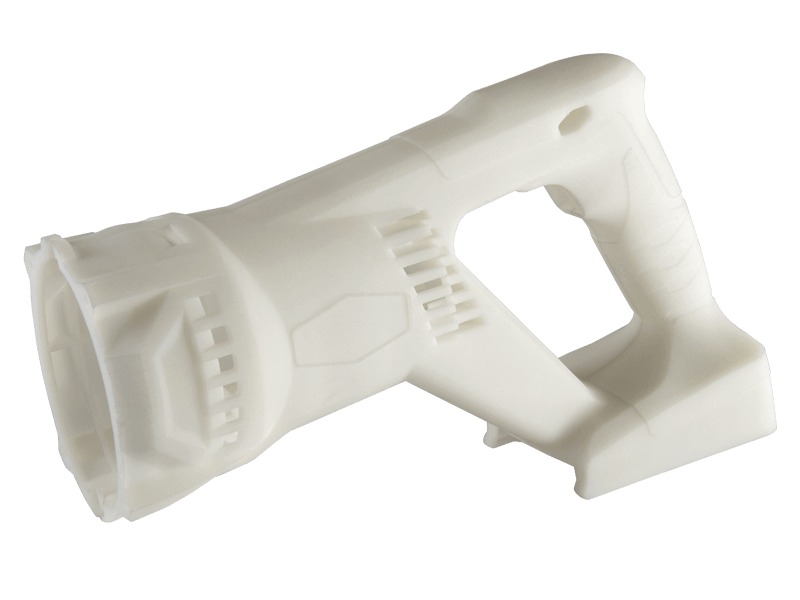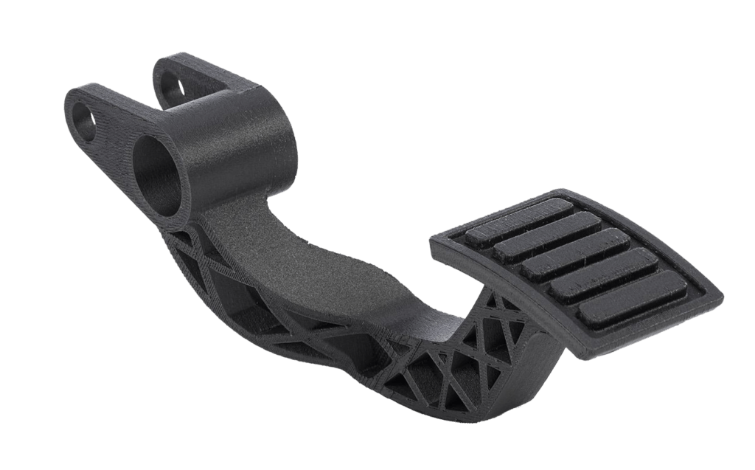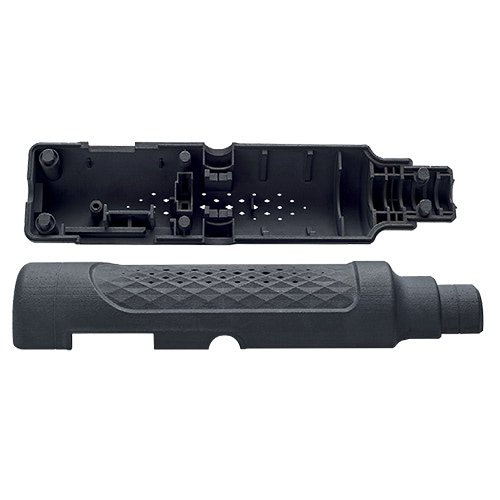Nylon is a resilient, durable, and strong plastic material with great chemical resistance.
Functional prototypes and small industrial parts are some of the ideal applications for 3D printing in nylon.
About Nylon
Nylon is a polymer from the synthetic Polyamides family, known for its high durability, strength and flexibility. This 3D printing material is commonly found in the variants PA 12 and PA 11, although other variants (PA 6 or PA 2200) are also available for 3D printing. In addition, nylon is often reinforced with fibers and particles from other materials to improve thermal and mechanical properties such as stiffness or abrasion resistance.
Due to offering outstanding mechanical properties, and good chemical, impact and heat resistance, 3D printing in nylon is ideal for functional parts and prototypes. Another advantage of this material is its relatively low cost.
Parts that are 3D printed in Nylon can be easily post-processed in any color. That is because Nylon exhibits hygroscopic properties which make it possible to change its physical characteristics by being exposed to moisture. However, being susceptible to absorb atmospheric moisture can also affect its performance. Nonetheless, this all-round material is a perfect choice for a wide number of applications such as connectors and hinges, medical prosthetics and small-series production of functional parts.
Strengths
- Outstanding mechanical properties
- Complex geometric structures
- Very resilient and durable material
- Easily post-processed in any color
- High chemical, heat, and abrasion resistance
- Low cost
- MJF technology provides a great balance between performance and reusability, with fine detail and dimensional accuracy
Weaknesses
- Print layers are visible with FDM technology
- Performance can be affected if exposed to moisture
Common Applications of Nylon
- End-use parts
- Strong but flexible industrial parts
- Functional prototypes
Available technologies on our Nylon 3d print service
SLS
Selective Laser Melting creates complex parts that are high in density with great structural integrity and precision.

FDM
Fused Deposition Model produces strong, accurate and stable parts in a wide range of plastics.

MJF
Multi Jet Fusion builds objects with great precision, smooth surface and high density.

Characteristics of 3D printing in Nylon
| SLS | FDM | MJF | |
|---|---|---|---|
| Max. Bed
Size (mm) |
|
|
|
| Min.Bed
Size (mm) |
|
|
|
| Layer Height | 300 μm | 50-300 μm | 50-60 μm |
| Accuracy | ★★★★☆ | ★★★☆☆ | ★★★★☆ |
| Smoothness | ★★★★☆ | ★★☆☆☆ | ★★★★☆ |
| Flexibility | ★★★☆☆ | ★★☆☆☆ | ★★★☆☆ |
| Rigidity | ★★☆☆☆ | ★★★☆☆ | ★★★☆☆ |
| Biocompatible | No | No | Yes |
| Food Safe | No | No | No |
| Watertight | No | No | Yes |
| Recyclable | Yes | Yes | Yes |
General technical data for 3D Printing in Nylon
| Density | 1 g/cm3 |
|---|---|
| Young Modulus | 1.6 GPa |
| Yield Strength | Not tested |
| UTS | 43 MPa |
| Elongation at Break | 14% |
| Hardness | Shore D73 |
* These values are meant to give a general idea of the material. Actual values may vary according to chosen material brand, 3D print service and build condition.
Get a quote to 3D print your part(s) with FacFox.